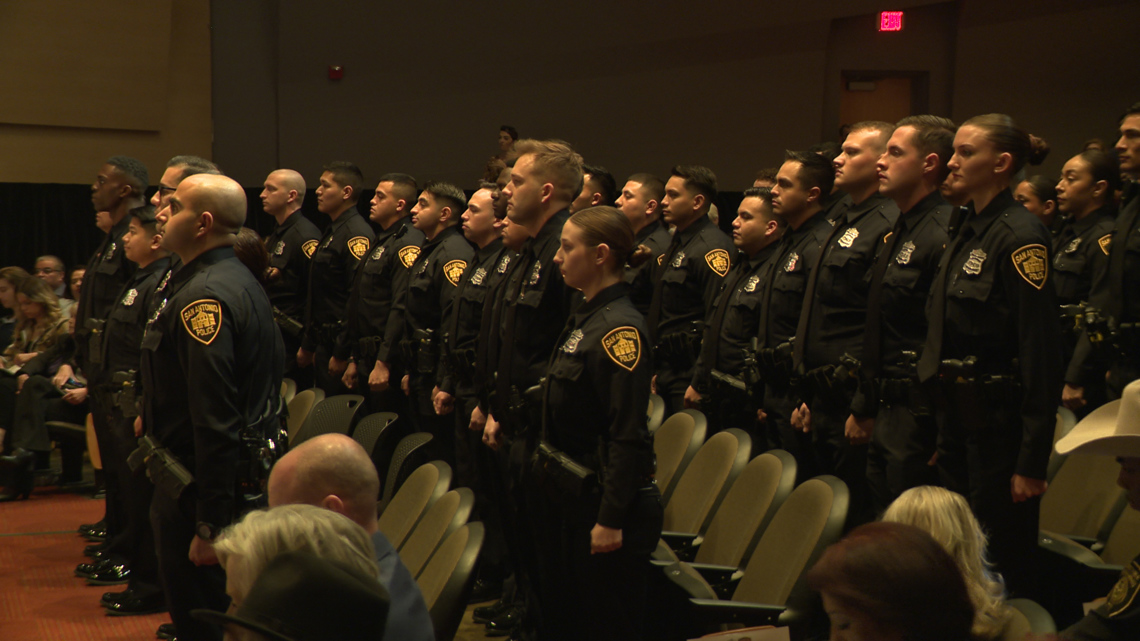The Community Immersion Program works to build dialogue and trust between San Antonians and the officers-to-be who will safeguard them. We get a firsthand look.
SAN ANTONIO — Some San Antonio Police Department cadets will take part in the Community Immersion Program, allowing them to build community partnerships before officially getting their badge.
As part of their training, cadets will visit the areas of the city they will soon patrol and meet with different stakeholders. The idea of the program is to give them a chance to not only familiarize themselves with the neighborhood, but to get to know the people they have sworn to protect and serve.
For a couple of months at the end of 2024, KENS 5 followed a couple of these cadets, including Harrison Krause and Elijah Compton as they visited locations on the south and east sides of the Alamo City, including Antioch Missionary Baptist Church, Leaven Kids after-school program, Williams Barber College and Ohana Academy.
Last Friday, as February came to a close, Krause and Compton graduated along with 38 other men and women.
Ohana Academy
On one recent Wednesday night at this jiu jitsu academy, it is class as usual—only with a future SAPD officer in the mix, interacting with the kids.
Evelyn Garza is a proud south sider who brings her 11-year-old to the location off Flight Nurse Avenue.
“I enjoy the fact that my son has SAPD officers here practicing with him and interacting with him,” Garza said.

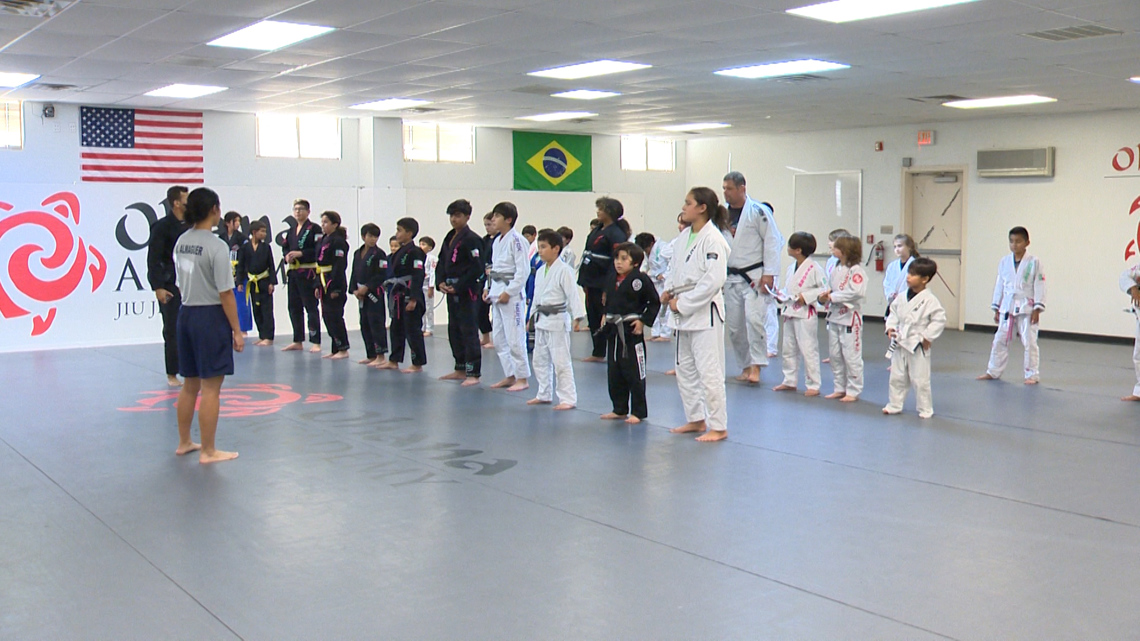
Garza said she sees the Community Immersion Program as an asset.
“Being able to foster and engage with officers is rewarding for them as well,” she said. “Being able to grow up and interact with them and see them on a daily basis.”
Garza said it’s important to foster and build on community engagement with the officers.
“It is important to know the area that you are going to be patrolling and being able to interact with our students and our community in general,” she said. “And be aware of what happens in this community.”
The sentiment is echoed by John Paul, who says his son having firsthand exposure with police-in-training will help build trust going forward.
“He knows if there is ever an incident on the streets and he has to ask for help, he knows that is safe to approach the officers.”
Williams Barber College
On the east side at Williams Barber College, the cadets made a stop to continue building connection. Elon Silas, the owner and head instructor, highlighted how this program is bridging the gap.
“I think, community and officers, we should always have a dialogue,” Silas said. “I think it just keeps us both safe. They just need a familiar face.
At the time of this visit, Krause and Compton were 18 weeks into the academy.
“Looking forward to it, hoping I can make it all the way,” said Krause, whose goal of joining the U.S. Army was cut short because of his asthma, spurring his new dream of joining SAPD.
Compton, meanwhile, had just graduated from UTSA with a criminology degree.
“It might seem idealistic, but (it’s) saving lives,” Compton added.

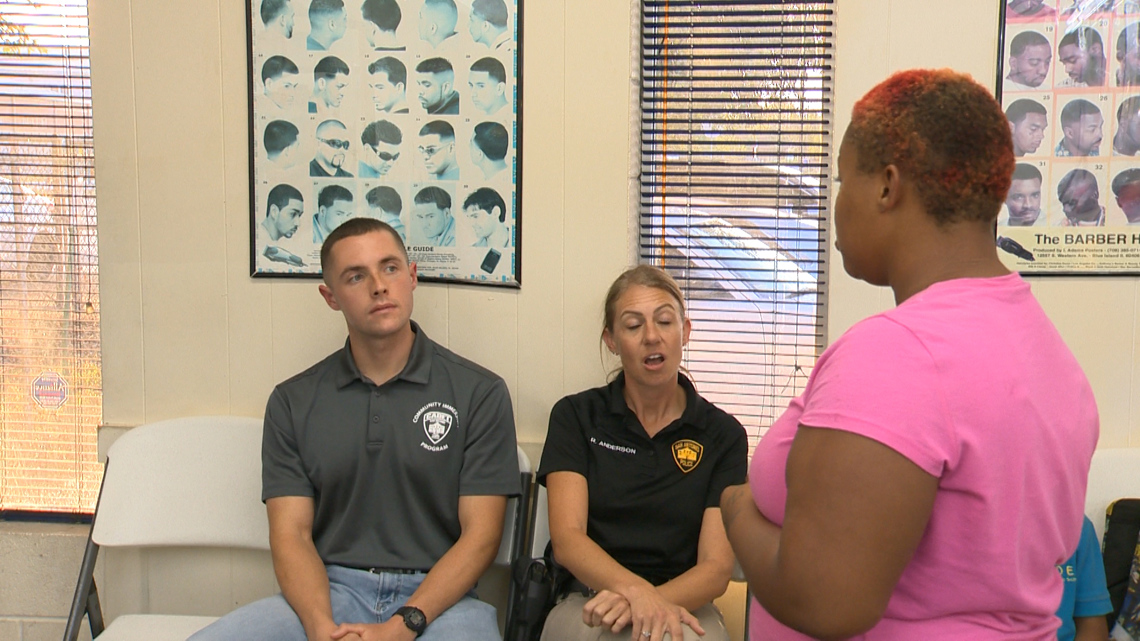
The two young men eager to protect and serve talked about the importance of participating in the Community Immersion Program.
“Remember that it is a partnership that we can work together to help the community,” Compton said.
“(We get to) make a good impression of law enforcement, get to know people in the community,” Krause said.
Antioch Missionary Baptist Church
In November, the program took the cadets to church.
For 90 years, Antioch Missionary Baptist Church has been a staple on the east side of town. The church’s lead surgeon and Senior Pastor Kenneth Kemp said he sees the program as good old fashion community policing.
“The why: I thought it was a wonderful thing to do,” he said.
Pastor Kemp said this type of program is needed and feels like the dialogue between the community and police has, at times, shown signs of erosion.
“I want to try to fill in the gaps they might have concerning who we are, this area of town, how police interact with our people,” he said. “The good thing is we are engaging these officers very early in their training. Hopefully, we will be able to shape their understanding and their cultural development.”
“I hope they become very productive, community-minded, culturally sensitive young men.”

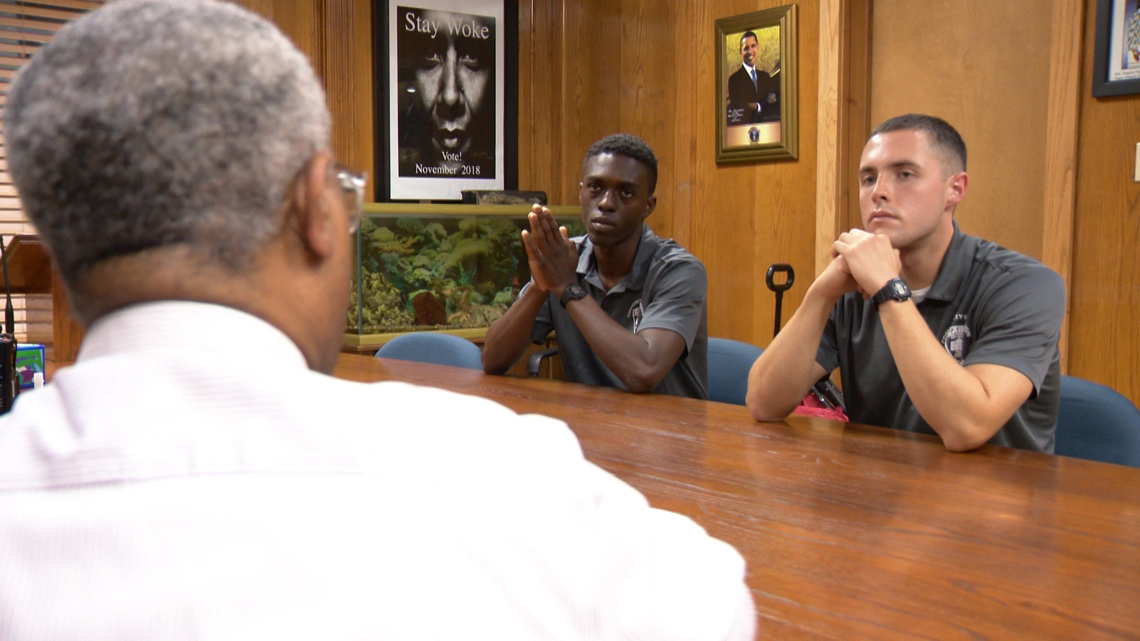
Leaven Kids
In their final stop last November, cadet Monica Almaguer found herself in a sea of young kids creating arts and crafts. Leaven Kids is an after-school program located in an apartment complex well known to San Antonio police.
Program Manager Mariana Loera Mata said they have not only seen success with their program, but also the program working with future officers.
“We know that, the community we are in, there are lot of distractions,” she said. “The kids are unsupervised after school. We also want our kids to understand that (police) are not against us, they are for us.”

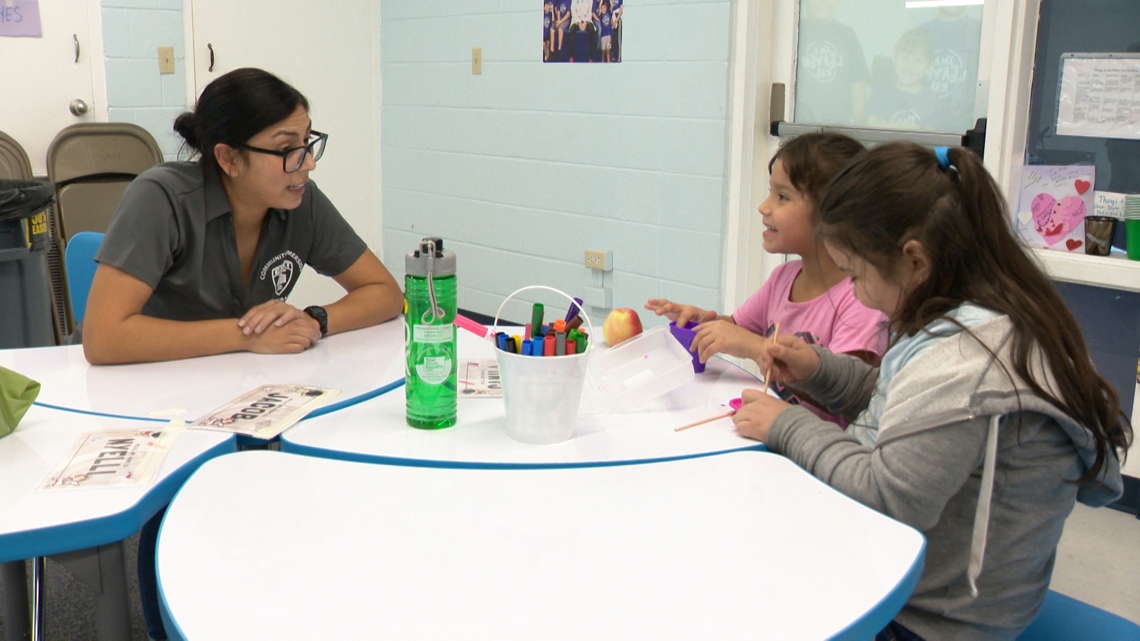
Loera Mata said this allows the kids to see law enforcement in a different light.
“I have heard kids tell me, ‘My father was arrested,’ ‘My father is in jail,'” she said. “A lot of the times when they do encounter police, it is because they are in danger or need help, or their parents are being taken away.”
Loera Mata said the children get excited when they hear the cadets are coming to visit. During the visit, some of San Antonio’s youngest residents get a chance to talk and interact with the future officers.
“Getting to see them outside of uniform, I think that’s huge,” she said. “And no one will be able to take that experience away from them.”
Each of these places pieced together a bigger purpose for these cadets who have since graduated to become SAPD officers. Several months after we met Compton and Krause, KENS 5 spoke to them about their journey to becoming officers.
“Ready to start it up,” Compton said. “It is a lot before me, but with time.”
“I am glad to be an officer now,” Krause added. “It was a long ride, but it was a good one. It is a benefit. It allowed me to know the area better even geographically and the people.”

